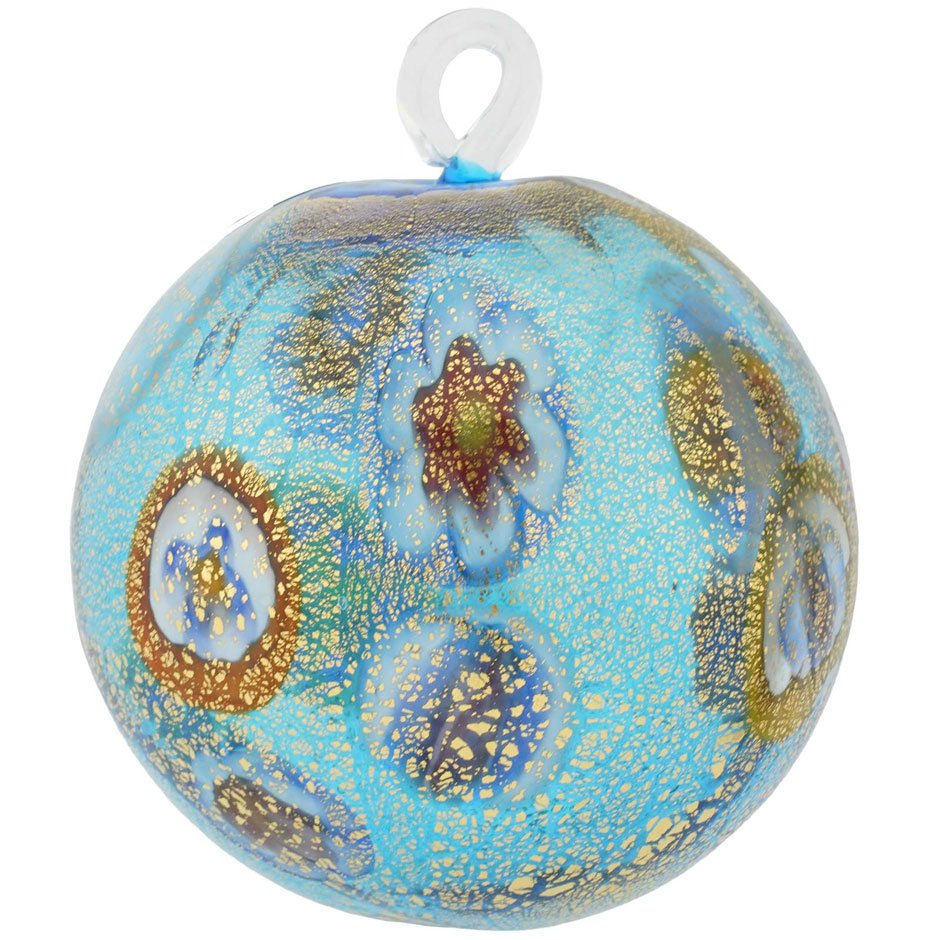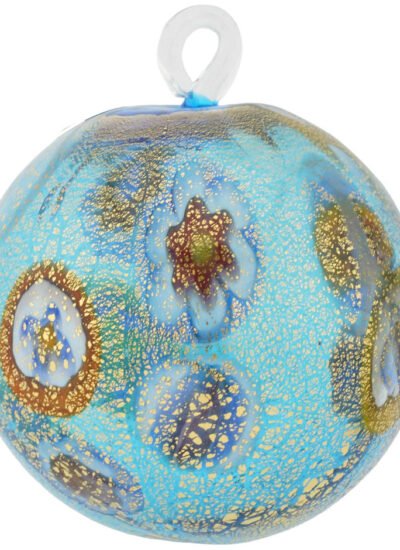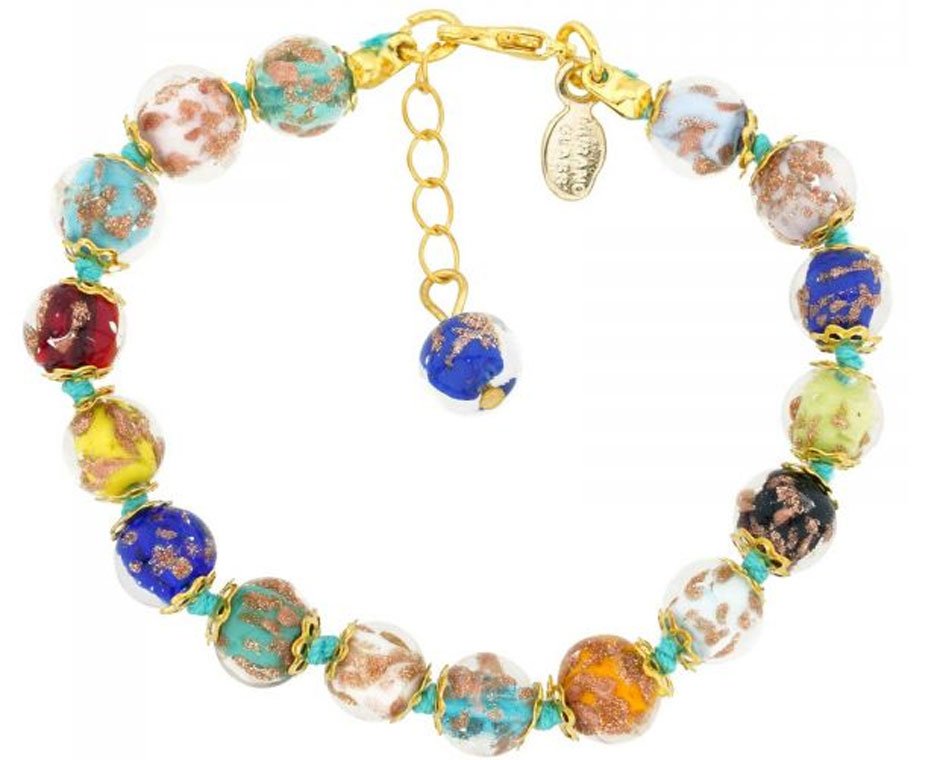 Murano glass is something that brings light and beauty into your home once you place it in the right spot. The delicate details and radiant colors make it more than just your average piece of décor. It’s a statement for your home. It’s no wonder that it’s gaining more popularity by the day.
Murano glass is something that brings light and beauty into your home once you place it in the right spot. The delicate details and radiant colors make it more than just your average piece of décor. It’s a statement for your home. It’s no wonder that it’s gaining more popularity by the day.
The best place to find Murano glass is a Venetian glass shop, most of which are located in and around the city of Venice in Italy, including the famous eponymous island of Murano. These stores selling local handblown glassware try hard to put these crafts in the best light, in more ways than one. It’s more than just a selling point, but a gateway to history and a centuries-old tradition.
This article will discuss more about Murano glass shops and how Venetian glassmakers keep the tradition alive.
Types of Murano Glass Shops
Each Murano glass shop has its own style and personality, depending on who opened it and why. Here’s what you are likely to come across during your trip to Venice or Murano Island.
1. Family-Run Murano Glass Boutiques
Family-run glass shops are perhaps the most common in Venice, especially as most glassmakers pass their craft to their children and grandchildren. These shops have been there for a while and have touches from every generation. It’s why they usually feel like a living room rather than a store.
The Murano Glass objects you will find for sale in these places are usually those crafted by the family that owns the shop. That said, you are still likely to find Murano glass figurines, vases, or pieces of jewelry that have different styles. Older pieces (also known as vintage, the ones crafted by the older artisans, some of which may no longer be alive) are usually more expensive, but they come with a story.
2. Artisan Studios with a Storefront
Some Murano glassmakers prefer to keep everything close to them. Each time a new piece is made, they want to display it immediately and make it available for sale without delay. This is why they usually open a storefront where they have the studio.
The cool part about these studios is that they’re quite immersive. You can step into the shop and still hear the torches hiss at the back. Depending on the shop, you can even watch as they finalize it and buy it right from their hands.
3. Venetian Glass Shops for Tourists
Venice and Murano have plenty of shops lining their streets and canal-side promenades, packed with a stunning variety of Murano Glass objects from large vases and designer sculptures to small souvenirs and jewelry. It makes sense, seeing that glassmaking is a core craft of Venice. These stores are made to catch the eyes of travelers and often feature elaborate museum-like window displays with vintage sculptures and fancy chandeliers.
One thing to keep in mind is that, unfortunately, more often than not, these shops carry a mix of both authentic Murano Glass and pieces created elsewhere. It’s always a good idea to look for certificates of authenticity or ask for proof of an item’s origin. You may be just browsing, or wanting to buy a nice piece on a whim, but a simple chat could help you make a distinction and buy an authentic Murano Glass piece.
4. Museum Stores and Glass Galleries
These places are on the more prestigious side, as they showcase some of the finest Murano glass pieces. Most of the pieces in the galleries and showrooms are for sale, but they are not just randomly placed on a crowded shelf. Instead, they are displayed like a piece of art while being given room to shine.
The Murano Glass Museum on Murano Island has an amazing collection of Murano Glass from antiquity to modern days and offers interesting pieces for sale in the museum store. Most galleries collaborate with famous glassmakers such as Lino Tagliapietra or Livio Seguso to display exclusive art collections. These are pieces you would not normally find at a random tourist shop, making them a collector’s dream. On the plus side, these museums and galleries can also include guided tours, which means you can learn about their heritage.
5. Online Shops
We live in the era of technology and digital reach, so naturally, Murano glassmaking would go beyond the physical shops. Many Murano artists have their own Murano glass shops or collaborate with trustworthy stores to sell their original work. This lets them ship their work to interested shoppers who are not able to visit Murano themselves.
Of course, authenticity is a big concern with online shopping. Especially when buying from online stores, make sure you understand the origin of the products and get assurance of their authenticity. Look for specialized Murano Glass sites that have been in business for many years. Most importantly, seek out the online Murano Glass shops that not only sell products but also have extensive informational sections, photos, and videos of the glassmaking process.
How Murano Glassmakers Keep the Tradition
Through their craftsmanship and shops, Murano glassmakers work hard to keep the tradition alive. This way, they inspire others to appreciate the craft more, perhaps even learn from it. Here’s what you may witness:
Demonstrating Traditional Techniques
Perhaps one of the most common methods that Venetian glassmakers use to preserve their craft is to demonstrate their technique. This is more common in artisan studios with a storefront.
Visitors can watch the artist blow the molten glass through their blowpipe and use techniques such as Sommerso, Millefiori, or Filigrana. People are more likely to want to learn or buy when they see the artisans themselves working on the glass art.
Showcasing Genuine Murano Glass
Murano glass shops keep the tradition alive by only showcasing genuine pieces. Each sculpture and vase has a story behind it and the passion of the master encased within the glass. Many larger objects have attached labels of the artisan workshop and certification backed up by the reputation of the artist.
Many shops refuse to sell cheap imitations of Murano Glass products, understanding that such trade, while temporarily lucrative, undermines the viability and future of the Murano Glass industry. This means that fewer fakes end up in the market. Plus, it benefits their reputation while protecting the livelihood of Murano glass artists.
Supporting Murano Artisans
Murano glassmaking is no easy craft, and glass shops in Venice are keenly aware of this. In addition, many shopkeepers are local Venetians who have known a number of artisans since childhood. Venice is a small city with just a few schools, so it’s not rare that the artisan and the shopkeeper went to the same schools or hung out in the same social groups.
Therefore, often the store owners work directly with a few of the local Murano glassmakers and ensure to fairly share the proceeds with the craftsmen. Some shops even go so far as to commission exclusive collections from Murano glassmakers, providing name recognition and regular income for the artisan.
Educating Visitors through Storytelling
The best way to convince someone to buy or learn something is to tell them a story about it. For example, artisans can share stories about how the piece was made or what inspired them to go for this pattern and color. If they used a particularly complex technique, they may explain why it’s so rare and unique. This way, buyers can understand the true value of the product.
Apprenticeships
Last but not least, the tradition is kept alive through the new generation willing to take on the craft. Family glass store owners pass the craft to their children or relatives interested in the craft.
Sometimes, artisans take on apprentices and teach them the craft. This is how Murano glassmaking survived for centuries in Italy and will likely continue to thrive.
Tips to Find a Genuine Murano Glass Shop
Some Murano glass shops can claim that they are selling genuine pieces, only for you to find out they are fakes. These forgers sell the pieces at a higher price, so it’s important to be able to distinguish between them.
Here are some tips to make sure you’ve stepped into a genuine Murano glass shop:
- Go directly to the island of Murano, which is the heart of the craft.
- Look for certificates of authenticity and the artist’s signature.
- Ask about the artist and see if the store personnel can share details.
- Examine the product for imperfections and details in craftsmanship suggestive of Murano glass.
- Check the price and compare it with other Murano glass pieces in a similar style and technique.
For the most part, if a product seems too good to be true, then it probably is. Make sure to do your research on the business before you make the final purchase.
The Bottom Line
Murano glass shops are a true experience where art meets tradition. It’s not just about selling; it’s about witnessing the history of the craft. Consider stepping into a Murano glass store so you can enjoy its historical value yourself.






Leave a Reply